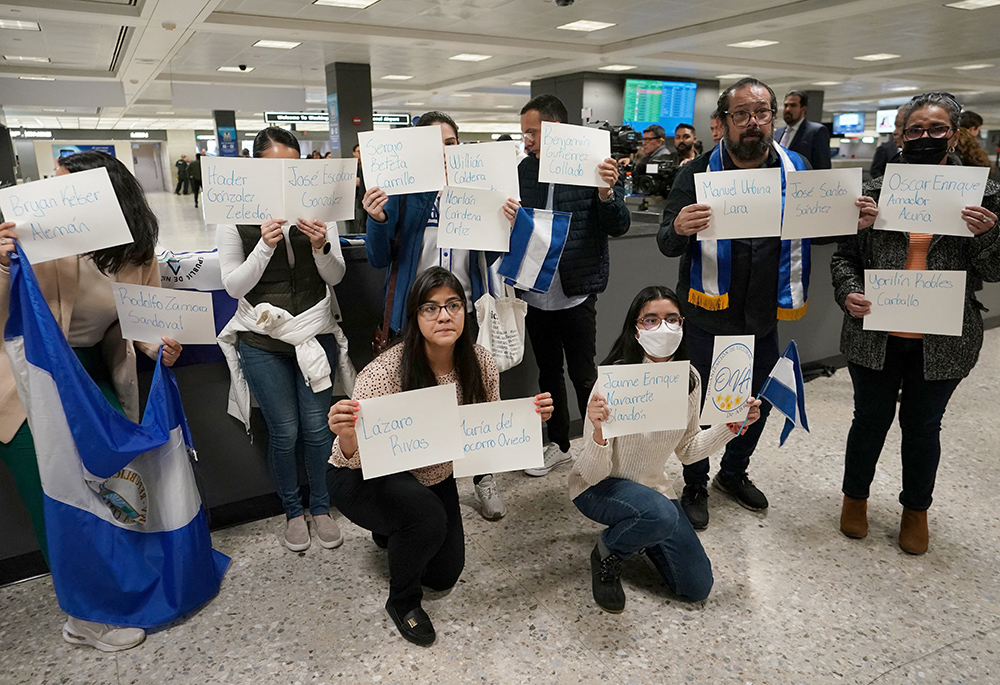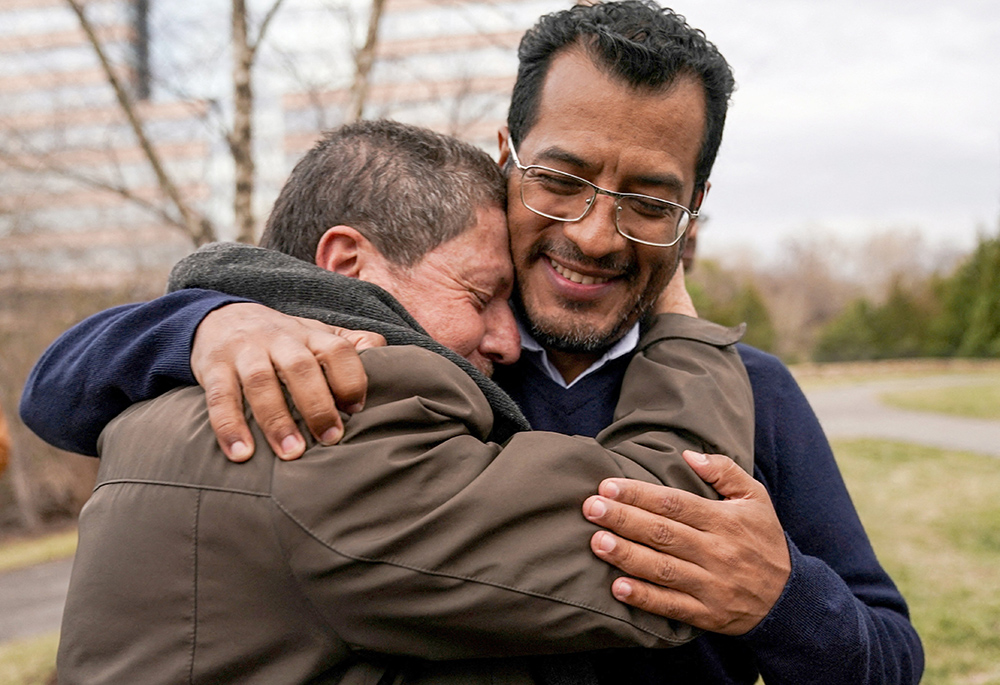
Activists hold up signs with the names of some of the more than 200 political prisoners released from Nicaragua, as they await their arrival at Dulles International Airport Feb. 9 in Virginia. (OSV News/Reuters/Kevin Lamarque)
Earlier this month, more than 200 imprisoned critics of Nicaragua President Daniel Ortega were released, stripped of their citizenship and deported to the United States. Among them were five Catholic priests, a deacon, two seminarians and two diocesan communicators.
Not on the flight was Bishop Rolando Álvarez of Matagalpa, an outspoken critic of the Ortega regime who had been under house arrest since August and reportedly refused to leave the country. The day after the deportees landed in the U.S., Álvarez was convicted of treason and other charges and sentenced to 26 years in prison. His whereabouts are unknown.
The bishop's arrest and the deportations of the churchmen are just part of growing persecution of the Catholic Church in Nicaragua over the past two years. Government forces routinely harass clergy and worshippers, according to the United States Commission on International Religious Freedom, or USCIRF, which has been documenting the assaults on religious freedom there.
In addition, Catholic charities and nongovernmental organizations have been eliminated, Catholic universities have lost funding and legal status, Catholic news media have been shut down, and groups, such as Mother Teresa's Missionaries of Charity, and individuals, such as the former papal nuncio, Archbishop Waldemar Stanislaw Sommertag, have been expelled.
Advertisement
Such religious persecution is appalling and should be denounced. And Catholics in the U.S. owe it to their Central American brothers and sisters to pray and work for an end to this oppression, which is part of broader assaults on basic democratic rights in Nicaragua.
Nicaraguan prisoners tell stories of sham trials, appropriation of their property, inhumane prison conditions and other human rights violations. Among their "crimes": running for office, organizing anti-government protests, and calling out human rights and religious freedom abuses.
U.S. Secretary of State Antony Blinken said the deported prisoners had been jailed "for exercising their fundamental freedoms and have endured lengthy unjust detentions."
In welcoming several of the deported priests to the Chicago Archdiocese, Cardinal Blase Cupich called for "an immediate end to the systemic persecution of the Church in Nicaragua though false accusations, the closure of Catholic radio stations, the blocking of access to Churches, and other serious acts that violate religious freedom and the social order."

Former Nicaraguan presidential hopeful Félix Maradiaga, one of the more than 200 freed political prisoners from Nicaragua, is embraced by a supporter outside a hotel after arriving in the U.S. at Dulles International Airport Feb. 9 in Virginia. (OSV News/Reuters/Kevin Lamarque)
Too often in the U.S., religious freedom is invoked as a smokescreen for bigotry or as a tool to impose one religious group's beliefs on those who don't share those beliefs. But what is happening in Nicaragua is a true assault on the church and on religious freedom. It should be opposed at every turn.
International Religious Freedom Commissioner Frank Wolf praised the release of the prisoners as a "welcome gesture," but said it is not enough.
"The subsequent sentencing of Bishop Álvarez demonstrates that the regime's campaign against the Catholic Church will not soon abate," he said in a statement on Twitter. "The U.S. government should use every tool at their disposal to encourage the restoration of democracy and human rights in Nicaragua."




